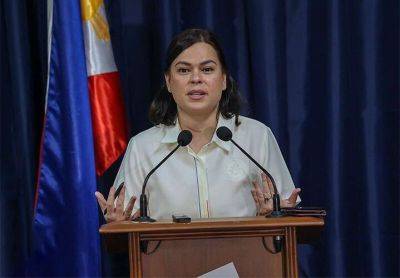Sleep medicine specialist explains causes of 'daytime sleepiness'
MANILA, Philippines — Rise and shine! You woke up at the same time that you always do every morning. You’ve had your morning shower and your usual delightful cup of freshly brewed coffee. Breakfast is ready, and it’s your favorite Daing na Bangus, fried egg and garlic rice. You’re all set to go to work, where you have an 11 a.m. meeting to attend.
There’s just one hitch: You can’t keep your eyes open and would rather crawl back in bed and spend the rest of the day catching up on your sleep.
What is wrong?
“When you’re feeling sleepy in the morning, it’s assumed that you haven’t had the recommended eight hours of sleep the night before,” said Maria Patricia Ann T. Puno, MD, Sleep Medicine Specialist from Makati Medical Center (MakatiMed). “Maybe you were up late working, partying, or binge-watching your latest K-drama obsession. Perhaps you’re getting over jet lag or are looking after a newborn who needs your constant attention.”
Having the right quantity of good quality sleep is important to stave off excessive daytime sleepiness (EDS). But what if you did sleep for eight or more hours yet still feel it isn’t enough? And what if it happens often enough that it affects your ability to handle your responsibilities at home and on the job?
The condition is called hypersomnia, according to MakatiMed. Defined by the International Classification of Sleep Disorders as “the inability to stay awake and alert during the major waking episodes of the day, resulting in unintended lapses into drowsiness or sleep,” hypersomnia is identified by a number of symptoms.
“Patients with hypersomnia display constant sleepiness throughout the day, difficulty staying up despite having adequate hours of sleep, irritability, lack of energy and appetite,” noted Dr. Puno. “Moreover, they don’t benefit from power naps and remain sluggish even after a bit of shuteye.”
Identifying and treating the underlying causes of excessive sleepiness is key to the management of hypersomnia.
“When taken during the day, antihistamines, anti-epileptic drugs, antipsychotic medications, and muscle relaxants can induce sleepiness,” revealed Dr. Puno. “Medical conditions like head trauma, hypothyroidism,







